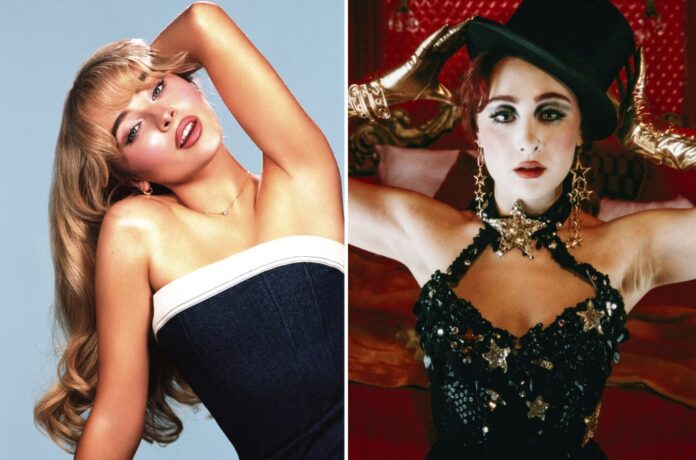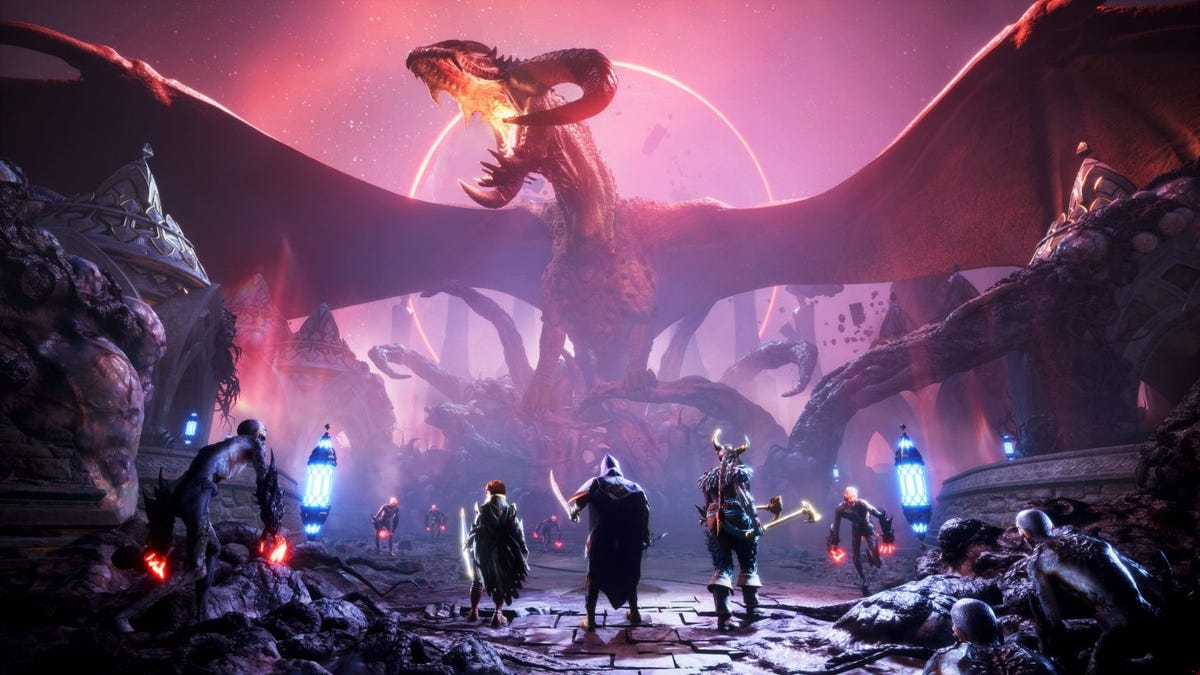Remarkably, 12 of those 16 artists are women.

Sabrina Carpenter & Chappell Roan
Bryce Anderson; Ryan Clemens
For only the third time in Grammy history, two artists are nominated in each of the “Big Four” categories – album, record and song of the year plus best new artist – in the same year. Two red-hot pop stars, Chappell Roan and Sabrina Carpenter, both achieved the feat for the 2025 awards. Olivia Rodrigo and FINNEAS both achieved it three years earlier. Billie Eilish and Lizzo both achieved it five years earlier.
This has happened more often in recent years because the number of nominees in each of the Big Four categories has expanded. Until the Grammy ceremony held in 2019, there were generally five nominees in each of those categories. The upcoming 67th annual Grammy Awards, set for Feb. 2, will mark the seventh year in a row there have been eight or more nominees in each of those categories. (There were 10 at the ceremonies in 2022 and 2023, but the Recording Academy brought it back down to eight in each of the least two years.)
Since 1959, when the Grammys introduced their best new artist category, just 16 artists have been nominated in each of the “Big Four” categories in the same year. Remarkably, 12 of those 16 artists are women. How to account for that? Grammy voters seem to like to give extra encouragement to talented young women artists.
Here’s a complete list of artists who have been nominated in each of the top four Grammy categories in the same year. The years shown are the years of the Grammy ceremonies.
-
Bobbie Gentry (1968)


Image Credit: NBCUniversal/Getty Images Gentry, who was 25 at the time, was nominated for her debut album Ode to Billie Joe and the intriguing story song that was its title track. She won best new artist and in two other categories – best vocal performance, female and best contemporary female solo vocal performance. Gentry hasn’t won another Grammy since that night, though she was nominated for her 1970 album Fancy.
-
Christopher Cross (1981)
Cross, then 29, was nominated for his eponymous debut album and his hypnotic ballad “Sailing.” He won in all four categories and for best arrangement accompanying vocalist(s). Cross received three more nominations the following year for “Arthur’s Theme (Best That You Can Do),” though he hasn’t added to his trophy collection since his big night.
-
Cyndi Lauper (1985)
Lauper, then 31, was nominated for her first solo album, She’s So Unusual — and, in a unique occurrence, two different works for record and song of the year, respectively. The zesty “Girls Just Want to Have Fun” was nominated for record; the poignant “Time After Time,” which Lauper co-wrote with Rob Hyman, was nominated for song. She won best new artist. She won a second Grammy 29 years later – best musical theater album for Kinky Boots.
-
Tracy Chapman (1989)
Chapman, then 24, was nominated for her eponymous debut album and her surprise hit, “Fast Car.” Chapman, the first Black artist to be nominated in each of the Big Four categories in one year, won best new artist and in two other categories – best pop vocal performance, female and best contemporary folk recording. She won a fourth Grammy eight years later for “Give Me One Reason.”
-
Mariah Carey (1991)


Image Credit: Robin Platzer/IMAGES/Getty Images Carey, then 20, was nominated for her eponymous debut album and her sleek ballad “Vision of Love,” which she co-wrote with Ben Margulies. She won best new artist and best pop vocal performance, female. She has since won three additional Grammys.
-
Paula Cole (1998)
Cole, then 29, was nominated for her debut album, This Fire, and her hit “Where Have All the Cowboys Gone?” She won best new artist. She had seven nominations that night, including producer of the year, non-classical, but hasn’t even been nominated since that night.
-
India.Arie (2002)
The singer, then 26, was nominated for her debut album, Acoustic Soul, and her single, “Video.” She co-wrote the song with Carlos “Six July” Broady, Reginald Harris and Shannon Sanders. India.Arie was the first artist to receive nods in each of the Big Four categories but not win in any of them. She went 0-7 that year (though she came back to win two Grammys the following year and two more in the years since then).
-
Amy Winehouse (2008)


Image Credit: Peter Macdiarmid/Getty Images Winehouse, then 24, was nominated for her second (and final) studio album Back to Black and her retro-sounding hit “Rehab.” Winehouse, the first English artist to be nominated in each of the Big Four categories in the same year, won for record and song of the year, best new artist and in two other categories – best pop vocal album and best female pop vocal performance. Winehouse won a sixth Grammy four years later for “Body and Soul,” a duet with Tony Bennett. Winehouse died in 2011 at age 27.
-
fun. (2013)
The trio — the only group to be nominated in each of the Big Four categories in the same year — was nominated for its second (and still most recent) album, Some Nights, and its power ballad “We Are Young,” featuring Janelle Monáe. The trio, consisting of Jack Antonoff, Andrew Dost and Nate Ruess, co-wrote the smash with its producer, Jeff Bhasker. fun. won song of the year and best new artist. Antonoff has since won nine additional Grammys.
-
Sam Smith (2015)
Smith, then 22, was nominated for their debut album In the Lonely Hour and for the “Darkchild Version” of the smash hit “Stay with Me” (which Smith co-wrote with James Napier and William Phillips). Smith won record and song of the year, best new artist and best pop vocal album. Eight years later, they won a fifth Grammy for “Unholy,” a record-setting collab with Kim Petras.
-
Billie Eilish (2020)


Image Credit: Kevork Djansezian/Getty Images Eilish, then 17, was nominated for her first full-length album, When We All Fall Asleep, Where Do We Go? and her quirky hit “bad guy” (which she co-wrote with her producer/brother, FINNEAS). Eilish was the youngest artist to receive nods in each of the Big Four categories in the same year. She won in all four categories, the first person to do so since Christopher Cross 39 years earlier. Eilish won a fifth Grammy that night, best pop vocal album, and has since won four additional Grammys.
-
Lizzo (2020)
Lizzo, then 31, was nominated for the deluxe edition of her third album, Cuz I Love You, and her genre-blending smash “Truth Hurts” (which she co-wrote with her producer Ricky Reed, Steven Cheung and Jesse Saint John). She lost in each of the Big Four categories to Eilish but still managed to win three awards that night – best pop solo performance (in which she managed to beat Eilish), best urban contemporary album and best traditional R&B performance. Three years later, she won record of the year for “About Damn Time.”
-
Finneas (2022)
FINNEAS, then 24, was nominated as a writer and producer on Eilish’s sophomore album, Happier Than Ever, and its title track and also for his work on the deluxe “Triple Chucks” edition of Justin Bieber’s Justice. He was nominated for best new artist for work on his debut studio album Optimist and its lead single “What They’ll Say About Us.” He didn’t win in any of the Big Four categories that year, but not to worry: He has amassed 10 Grammys, one more even than his superstar sister.
-
Olivia Rodrigo (2022)
Rodrigo, then 18, was nominated for her debut album Sour and its smash hit “Driver’s License.” She won for best new artist, as well as best pop vocal album and best pop solo performance.
-
Sabrina Carpenter (2025)
Carpenter, 25, received an album of the year nod for Short n’ Sweet, a record of the year nod for “Espresso” and a song of the year nod for “Please Please Please.” Short n’ Sweet is also nominated for best pop vocal album. “Espresso” is also nominated for best pop solo performance.
-
Chappell Roan (2025)
Roan, 26, received an album of the year nod for her first full-length album, The Rise and Fall of a Midwest Princess, and record and song of the year nods for its breakout hit “Good Luck, Babe!.” The Rise and Fall… is also nominated for best pop vocal album. “Good Luck, Babe!” is also nominated for best pop solo performance.







